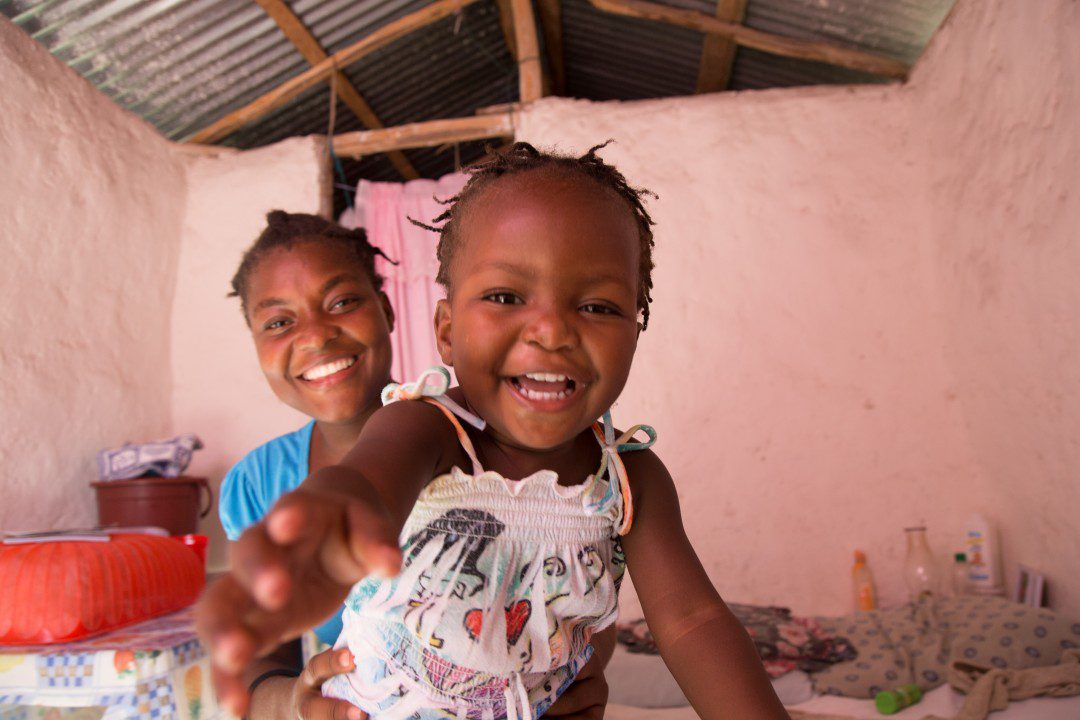Combining Powerful Nutrition Interventions for Lasting Impact
By Jillian Emerson, PhD
Associate Director, Nutrition and Technical Assistance at Vitamin Angels

In 2021, it was estimated that more than three billion people were unable to afford a healthy diet, driven by the repercussions of the COVID-19 pandemic, the war in Ukraine, and other global and regional phenomena impacting food availability, access, and affordability. Women and children are often the most vulnerable to the consequences of hunger and food insecurity, with greater nutritional needs due to pregnancy and rapid growth during childhood, yet often eating last or least in the household. With almost 600 million people projected to be chronically malnourished by 2030, urgent action is needed to protect the most nutritionally vulnerable populations and ensure healthy outcomes for all.
Proper nutrition is essential during the most critical periods for health and development—during pregnancy and until a child’s fifth birthday. For pregnant women, malnutrition heightens the risk of anemia, paving the way for serious and sometimes life-threatening complications for both the pregnant woman and her baby. Undernutrition in the fetal, infancy, and early childhood stages often results in irreversible damage to physical and cognitive development, impacting lifelong educational and earning potential, and thus perpetuating intergenerational cycles of poverty and poor health.
Despite this challenge, we have high-impact, evidence-based nutrition interventions that can break the intergenerational cycle of malnutrition. These interventions are a powerful, proven way to support healthy pregnancies, improve birth outcomes, reduce infant and maternal mortality, promote optimal growth and cognitive development, and protect children under age five against common childhood infections.
These interventions include multiple micronutrient supplements (MMS)—also known as prenatal vitamins and minerals—during pregnancy, promotion of optimal infant and young child feeding practices, and regular vitamin A supplementation and deworming treatment for children under five years of age, and are widely recognized as among the most cost-effective and life-saving nutrition interventions available today.
Daily MMS intake by a pregnant woman protects her from anemia, promotes optimal fetal development, and reduces the likelihood that her baby will be born with low birth weight and other complications. Regular vitamin A supplementation—starting at the age of six months—strengthens children’s immune systems, and that coupled with deworming medicine starting at one year improves nutrient absorption for optimal growth and illness prevention. Promotion of optimal breastfeeding and complementary feeding practices through counseling and other
interventions has the potential to impact short and long-term health outcomes. Early and exclusive breastfeeding for the first six months of life reduces the risk of malnutrition, illness, and death among infants, and protects them against chronic diseases later in life. Breastfeeding also offers many benefits to mothers, including protection against chronic diseases such as cancer and Type 2 diabetes, and can help with birth spacing. Introducing nutrient-rich complementary foods at 6 months of age (when breastmilk alone is not enough to meet nutritional needs), and feeding in appropriate quantity and frequency, is critical for the prevention of stunting and to support optimal growth, along with continued breastfeeding.
Reaching a mother and child with a full package of these interventions, at multiple points in time before birth through the first five years, represents an opportunity to amplify their impact.
Vitamin Angels works with a network of over 1,200 program partners to increase access to these interventions, and offers technical assistance through social and behavior change strategies, monitoring and evaluation, and training and capacity building to ensure they are delivered effectively, while working with government partners to strengthen health systems and support scale-up and sustainability. This innovative approach, leveraging civil society networks and public sector resources, offers an opportunity to ensure women are reached early in pregnancy with proven nutrition solutions and nutrition support is provided through their child’s fifth birthday, contributing to the reducing the burden of disease and undernutrition and promoting healthy growth and development.
Nourishing a mother and her child with proven nutrition solutions at the most critical life stages can provide them with the holistic support they need to flourish. To break the intergenerational cycle of poverty and poor health, and pave the way for families and communities to thrive for generations to come, we must work across sectors to ensure women and their children—together—are reached early in pregnancy with proven nutrition solutions, and nutrition support is provided through their child’s fifth birthday.
